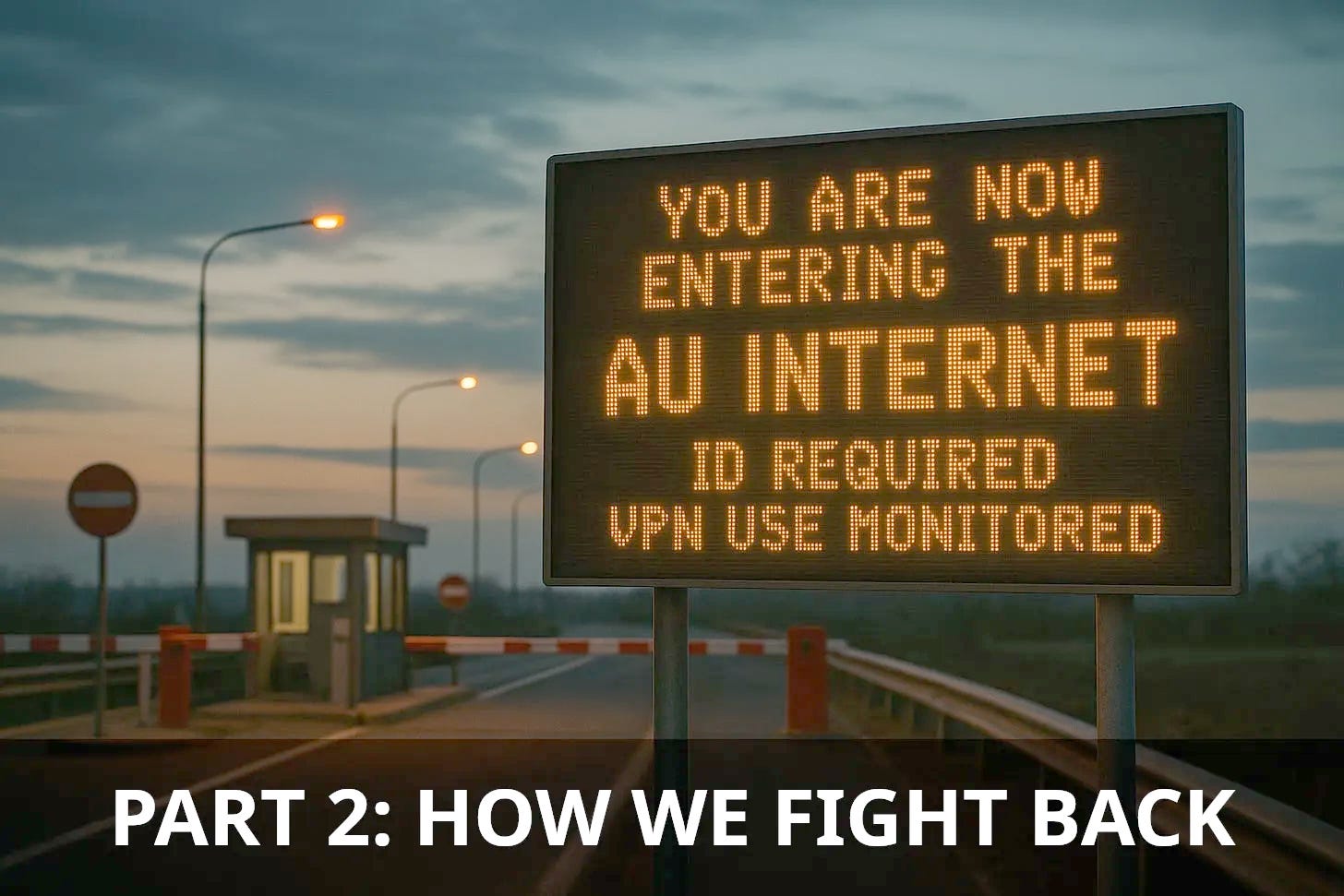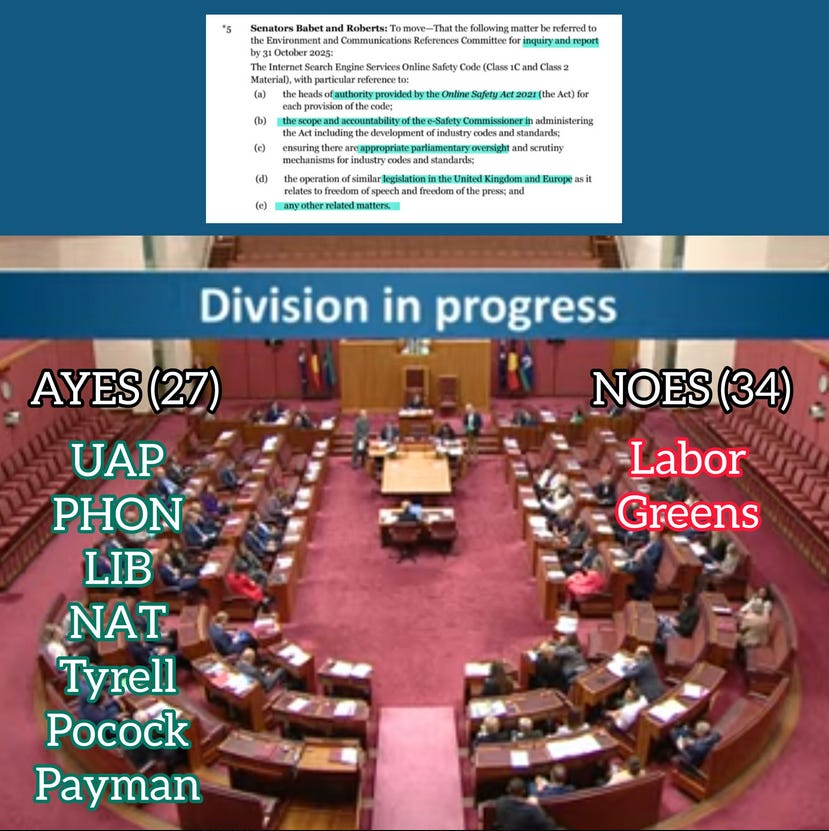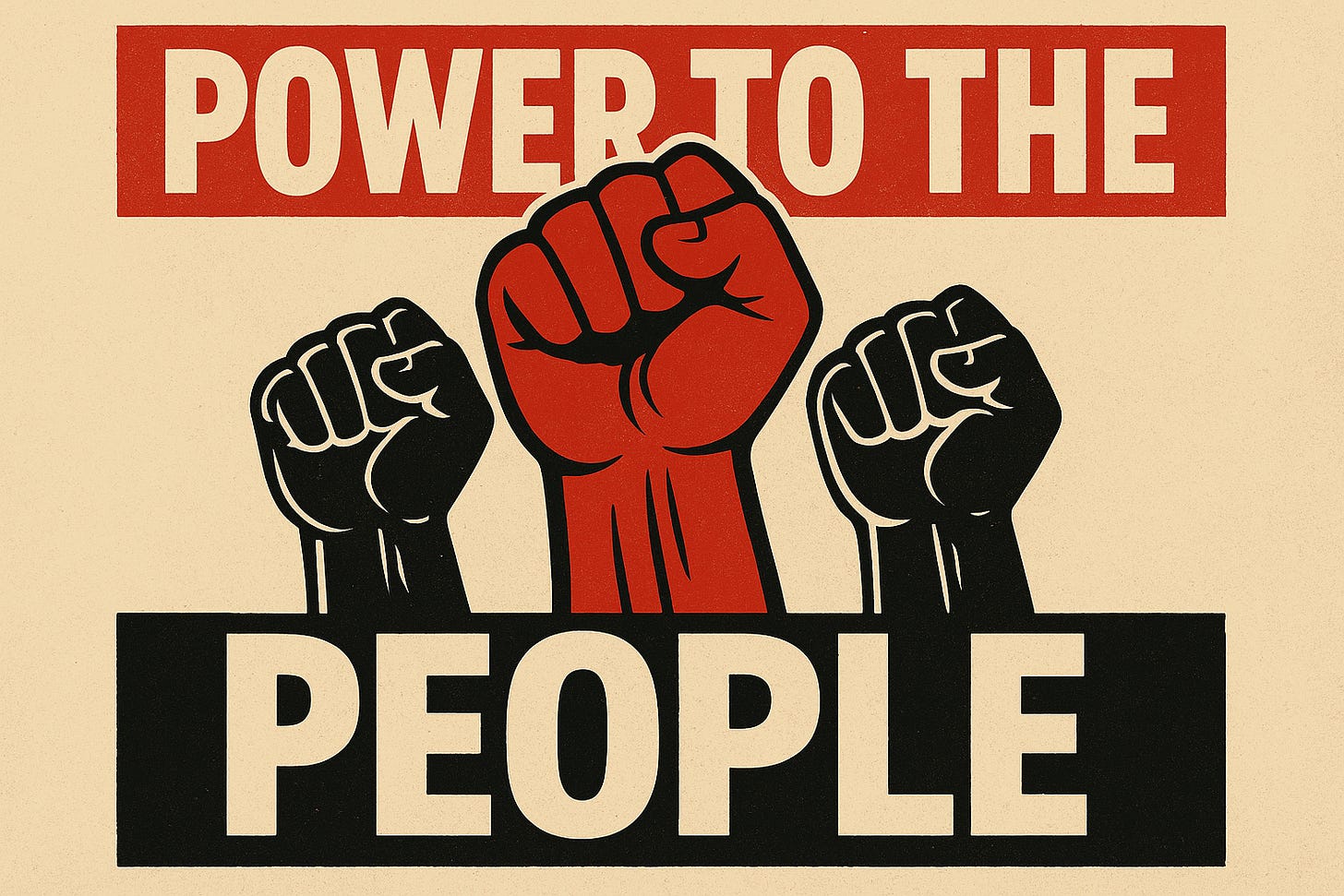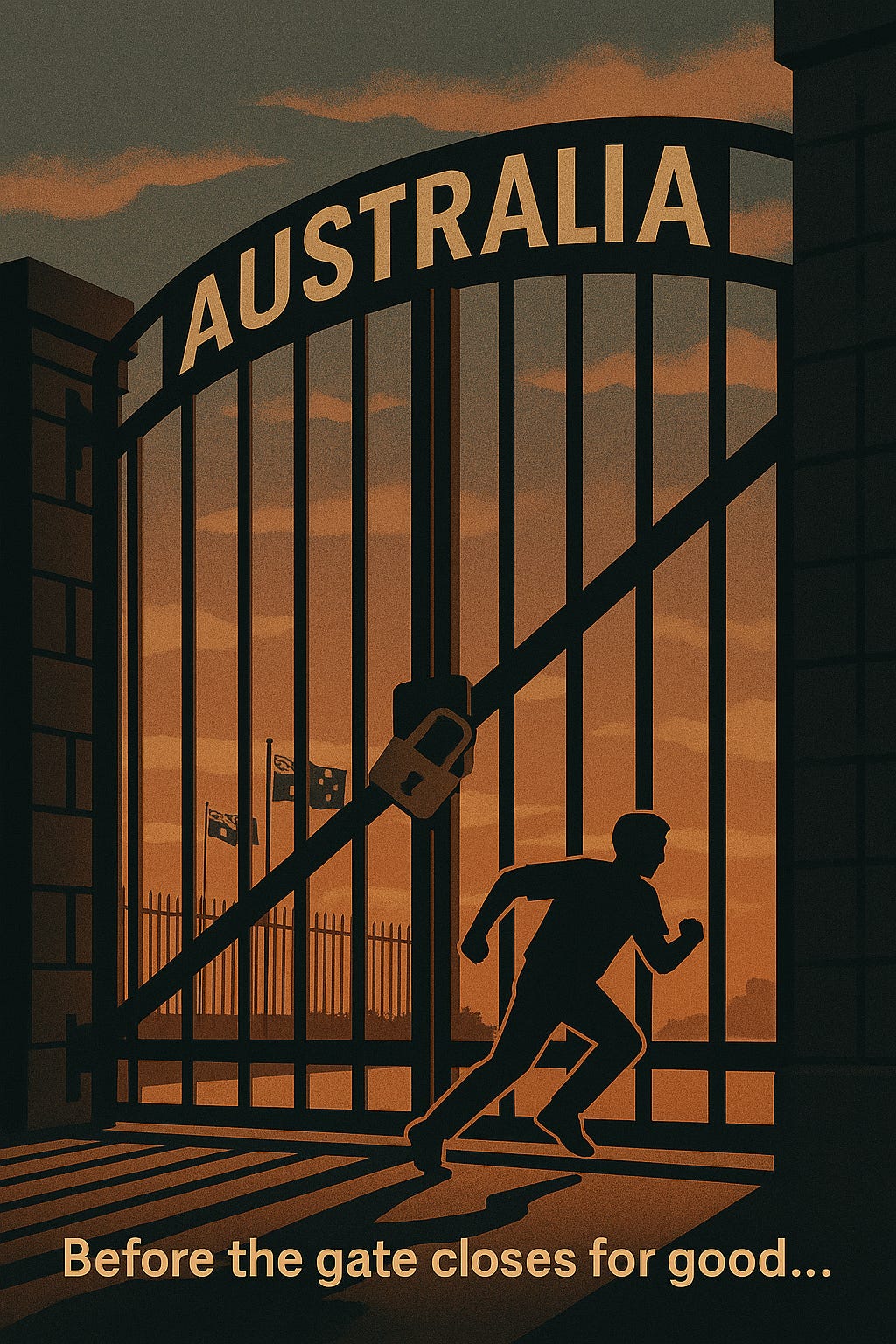Part 2: Your Papers, Please
The quiet rise of digital ID — how we fight back
⚠️ The Online Safety Bill will affect every Australian — not just teens. ⚠️
If we stay silent now, in December 2025 we’ll sleepwalk into
as system of surveillance, censorship and control.
If you’ve landed here but haven’t yet seen part 1, please read
Your, Papers Please for background and then return here.
In part 2, I aim provide guidance and tools we can use to fight back.
Read it. Share it. Push back — while we still can.
Know what’s coming.
Understand what’s at stake.

Recap: Australia still has a choice — but not for long
The deadline for implementation is set for December 2025.
If this system goes ahead, you'll need to prove who you are — not just to speak, but to search, learn, and stay informed.
This Bill isn’t about keeping teens off social media. It’s about building the gate, issuing the passes, and deciding who gets to enter the public square.
And it doesn’t stop at surveillance.
It rewires what children know — and what they’re allowed to learn.
It conditions how young voters think.
And it narrows the spectrum of thought until consensus is the only safe answer.
Once built, it won’t be dismantled.
Once normalised, it won’t be questioned.
So, the real question isn’t whether this proposal goes too far.
It’s whether we’re willing to live in a country where access to information is permission-based — and the next generation never knew it was any other way.
Do you really think they could pass a Digital ID law through the front door? Through honest debate? With public consent?
Of course not. And they know it.
Back in 1987, the government tried to introduce the Australia Card via referendum
— and the public gave them a resounding “no.”
And this time, they’re trying to sneak it in through the back door.
Same agenda — sneakier route.
They didn’t ask.
They didn’t explain.
They didn’t debate it.
And they sure as hell didn’t get consent.
And what about Labor’s broken election promise on YouTube?
Before the election, Australians were told YouTube would be exempt.
But now? The eSafety Commissioner is using survey data — rather than real world statistical data — to justify its inclusion.
No debate. No transparency. Just a quiet reversal based on bureaucratic spin.
They lied to get elected.
And now they’re lying to justify the rollout.
These people have forfeited our trust.
Australians should take a long hard look at our motherland for a glimpse of what’s coming if we don’t push back. The UK’s Online Safety Bill and age-verification regime is already tightening access to information and free speech — with real-world consequences.
The fundamentals:
Any trust placed in our government regarding censorship is misplaced.
“She’ll be right, mate” is for suckers.
We weren’t born free just to be barcoded, scanned, and silenced.
Signal Boost
They’re counting on you staying quiet — but you don’t have to play along.
If this post raises your blood pressure, good. That means you're still awake.
Share it — not for clicks, but so others can also take action.
Talk to your friends. Your family. Your pets. And definitely your MP.
We either raise the alarm now — or live with the serious consequences later.
The Nitty Gritty
With legacy media largely asleep at the wheel, it’s been up to independent voices to raise the alarm — though some have simplified things a little too far by calling it a “ban.”
It’s not quite that. Not across the board. What the Bill actually does is require platforms to take “reasonable steps” to stop under-16s from holding accounts. But without an account, most platforms become either crippled or useless:
– Facebook: effectively dead — no account, no access
– Instagram: Heavily restricted — you’ll see almost nothing without logging in
– YouTube: viewable, but no subscriptions, comments, uploads, or personalised recommendations
– TikTok: same — no interaction, no algorithmic feed
So while it’s not a blanket ban, for many platforms the effect is pretty close.
If this Bill can’t even do what it claims to — how can it be considered reasonable or justified?
Let’s be clear: the government’s stated justification — enforcing safety — doesn’t hold up under scrutiny.
The real goal? Digital ID — forced through the back door.
You don’t need a law degree to know this stinks. You just need the courage to speak plainly, ask the right questions, and not let them wriggle off the hook.
This isn’t about left or right. It’s about freedom and tyranny
— and who thinks they rule you.
This Bill was never designed for safety. It was always about control.
And control only works when people stay quiet.
So speak up. Share this. Ask questions.
The moment we stop playing along — they start to lose their grip.
What Happened in the Senate?
In late July 2025, the fight against the Online Safety Bill entered a critical new phase — and a few Senators stood up when it mattered.
Step 1: The Urgency Motion ✅
Senators Ralph Babet (UAP) and Malcolm Roberts (One Nation) led the charge, tabling an urgency motion to force immediate attention on the dangers of the Online Safety Code — the hidden machinery behind Australia’s new age-verification regime.
Their goal was simple: force the issue onto the Senate’s agenda — and into the light.
And they succeeded.
The urgency motion passed, with all non-Labor Senators voting in favour.
Labor stood alone in opposition.
That should have been the spark for real scrutiny. But what happened next exposed just how deep the rot goes.
Step 2: The Inquiry Motion ❌
Days later, the same Senators — Babet and Roberts — introduced a formal motion to establish a Senate inquiry into the Online Safety Code.
This motion asked for a full investigation into:
How the Code will affect Australians
The powers granted to the eSafety Commissioner
The implications for Digital ID, free speech, and online anonymity
But when the vote came...
The motion was voted down 34 to 27.
Labor blocked it.
The Greens joined them.
And just like that — the public was denied the scrutiny it deserves.
No transparency. No scrutiny. No debate.
Unfortunately, Jacqui Lambie was unavoidably absent as she would have likely been another supporter to the motion.
This Isn’t Good Enough
We’re not talking about hypothetical risks. The Bill is already law.
And now Labor and the Greens are trying to silence discussion around how it will be enforced.
The same politicians who backed the Bill now want to block the public from seeing what’s inside the machinery.
The motion — or a variation of it — can return.
But not until Australians have turned up the heat on those who voted it down.
This is where the power of the people comes in.
This is where you come in.
What We Can Do
It’s time to push back — publicly and directly. This isn’t about partisanship. It’s about transparency, parental rights, and digital freedom.
Here’s where pressure matters most:
Greens Senators voted no. Contact them and demand an explanation. They claim to stand for civil liberties — yet voted to block scrutiny of a surveillance bill.
That’s not progressive. That’s authoritarian.
Whether you voted for them or not, they sit in our Senate. They work for all Australians. Hold them to account.Labor MPs and Senators need to hear — loudly — that this won’t fly under the radar. They backed this Bill. They blocked the inquiry.
They own this outcome. Let them explain it.Jacqui Lambie was unfortunately absent for the last motion. Check in with her — ask that she support the inquiry at the next opportunity.
Your local Federal member can’t vote in the Senate — but they can raise hell.
Encourage them to use their voice.
It’s not all negative — we should thank and support those who stood up and did the right thing — like David Pocock and the LNP. Let them know it mattered. And that we need them to hold the line.
It’s encouraging to see the LNP’s Melissa McIntosh has released the following:
The next vote could happen any day. But only if there’s enough public pressure to bring it back.
The Bill passed quietly. The backlash shouldn’t.
Political Contacts
Get the contact details. Make the call. Stir the pot.
https://www.aph.gov.au/Senators_and_Members/
Ammunition
Here’s your ammo. Go ask the hard questions.
Questions to throw at Senators, your local MP — or anyone trying to defend this:
“Where was the debate? Who voted for this?”
(You didn’t. And you weren’t asked.)“Won’t this just force Digital ID for everyone — not just kids?”
(Yes. That’s the point.)“Even if the intention was good, when has government surveillance ever stayed in its box?”
(It hasn’t.)“Why are gaming and messaging platforms exempt?”
(Because it was never about safety.)“If this is really about protecting kids, why doesn’t it block access to YouTube or violent content?”
(Because children are the excuse — there is another agenda)“What exactly are those reasonable ‘steps’ the platforms must implement?”
Why not drop the subterfuge and spell it out? Spoiler: Because it involves Digital ID and the government knows Australia would never accept a Digital ID bill.
Protecting kids? YouTube and porn are untouched. But private messaging? Banned.
They didn’t ask for your consent.
But you still have a voice. Use it.
Comms Check
Disclaimer:
All views expressed are the personal views of Darren Kelly and reflect ongoing community engagement. They do not represent the views of any official role or organisation.





Your billboard says ‘VPNs Monitored’. Please expand on that. I know the use of them is totally banned in Venezuela with jail time and fines as punishment. Is Australia heading that way?
Well done mate, this is an interesting listen.
Is the "ban" on under-16s from YouTube constitutionally valid?
https://youtu.be/7aC_Ka8_7u4?si=FuHx7m27WkRgZ2hA